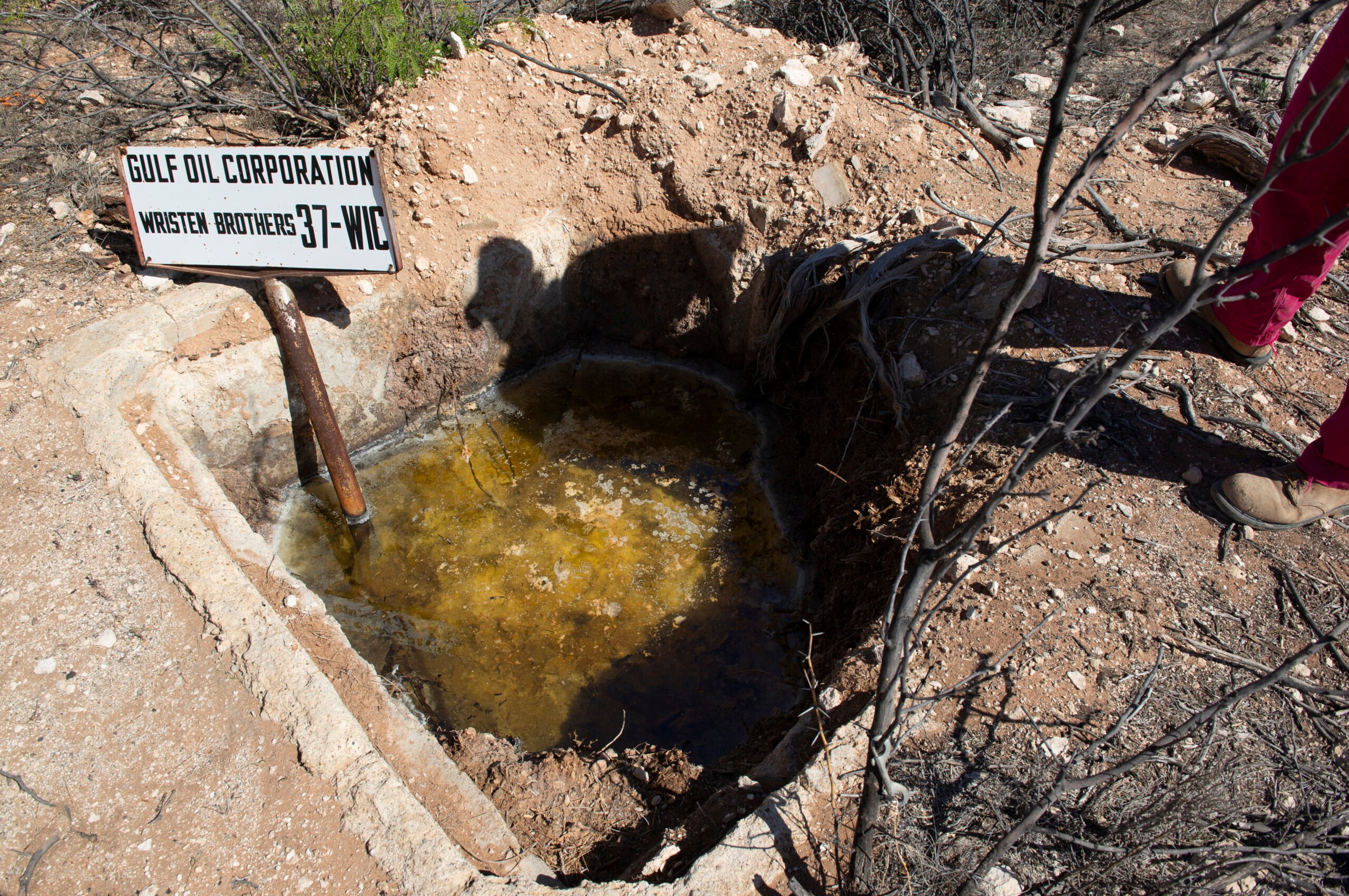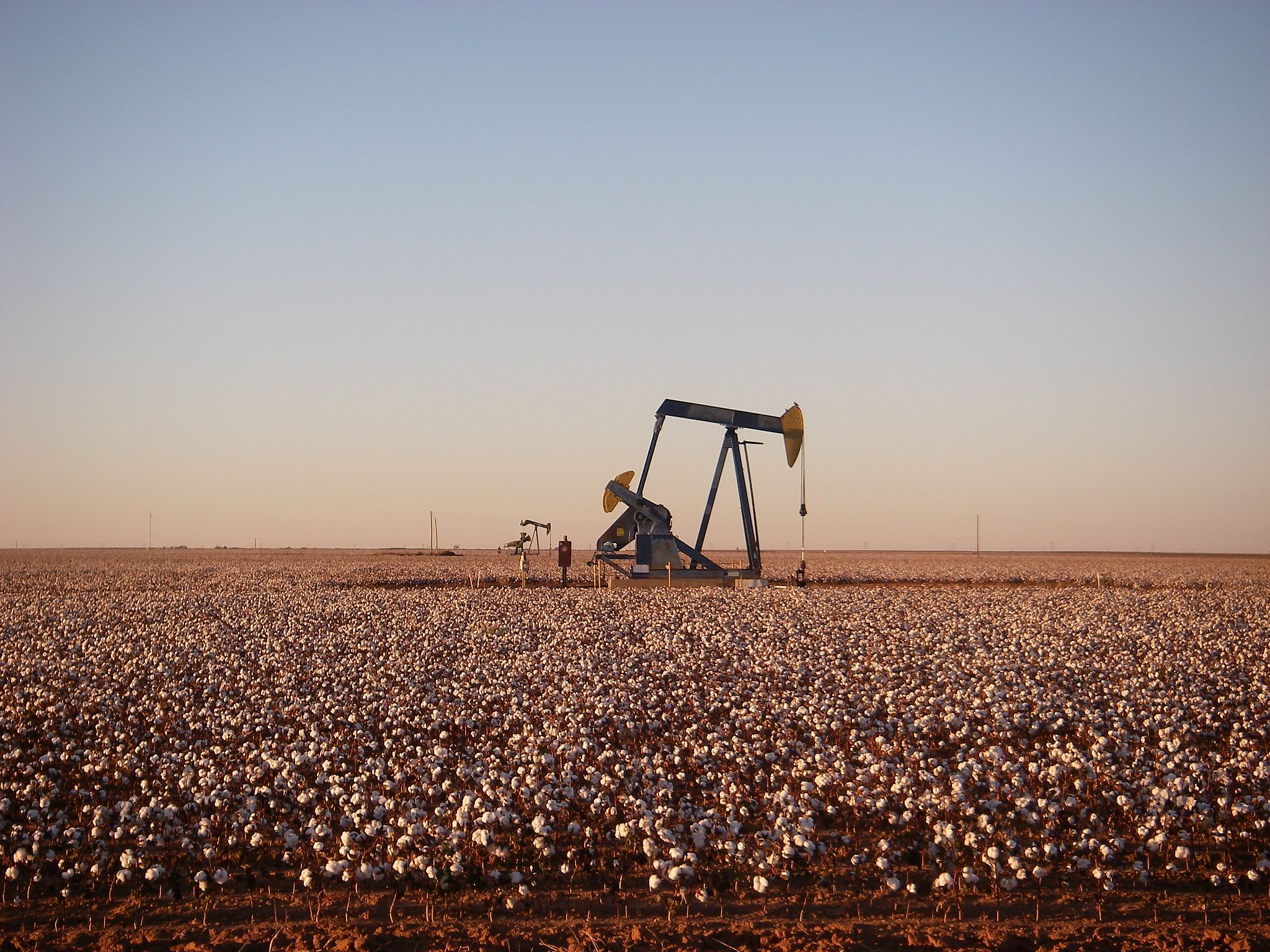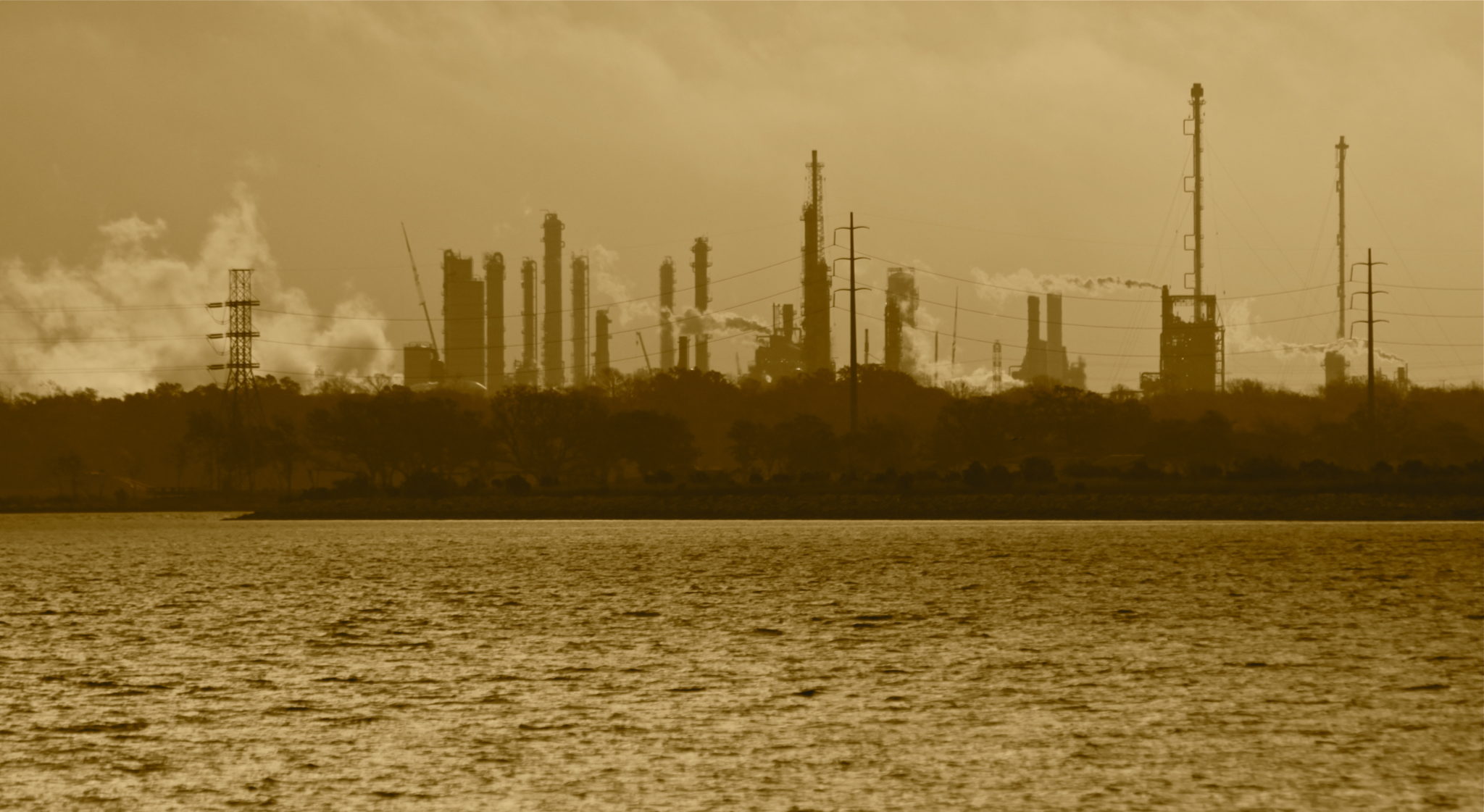
Exxon Appears to Mislead State to Secure Tax Break
In an application for a tax break from the Texas comptroller’s office, Exxon inaccurately claimed it hadn’t applied for any other permits for the facility.

In an effort to secure about $65 million in tax breaks, Exxon appears to have misled the state about how far along it was in deciding where to build a $1.9 billion plastics plant.
In July, Exxon applied for a tax exemption for two proposed plastics processing units at its Baytown facility. The company had already secured approval from Goose Creek Consolidated Independent School District to reduce the taxable value of its investment from about $700 million to just $100 million for 10 years. To get final approval from the Texas comptroller’s office, Exxon has to pass what’s called a “but for test” — but for the massive tax breaks, it wouldn’t build the plants in Texas. To prove that it was still considering other states, Exxon claimed in its application that the “project is still in an evaluation stage” and that “no regulatory permit applications have been filed.”
But Exxon had already applied for two permits for the plant. In October 2017, the company asked the Texas Commission on Environmental Quality (TCEQ) to approve an air emissions permit. Then, in January, the company submitted another application for a wastewater permit for the plastics units.
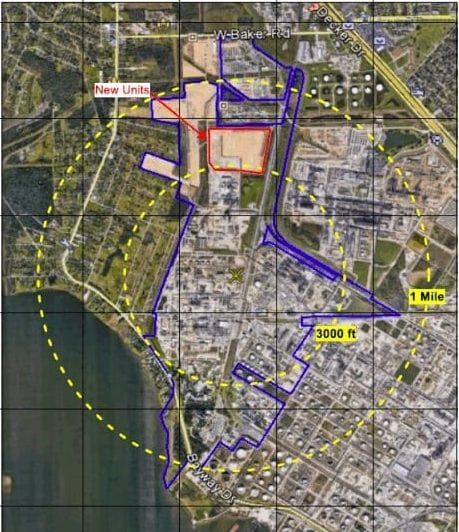
The timing of the permit applications is crucial because it appears to indicate that Exxon was moving forward with building its facility at the Baytown location even as it told the comptroller’s office it had not yet decided where it would build.
Nathan Jensen, a professor at the University of Texas at Austin who has studied the program, said that projects sometimes do have errors in their applications, but the comptroller’s office often approves the incentive anyway. “As long as the company uses some basic language that [the incentive] is ‘a determining factor,’ that project will qualify,” he said. “No evidence is needed, so this is as simple as having your consultant basically cut and paste the same language from any application.”
Sarah Nordin, a spokesperson for Exxon, acknowledged that claiming the company hadn’t applied for any permits was a mistake. “The errors in the original application were due to an administrative oversight,” she said, adding that the company was working with the comptroller’s office to fix them. A final decision on the units is “not expected until [the] first half of 2019, and is based on a number of factors, including receipt of environmental permits, market conditions and economic competitiveness,” she said. The comptroller’s office did not respond to specific questions, but said that Exxon’s application is under review.
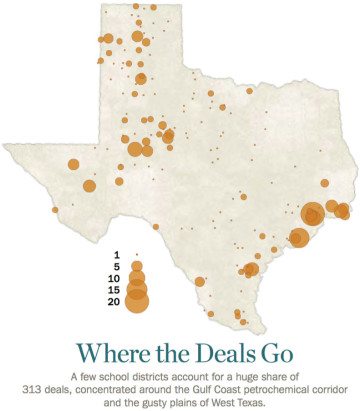
The Texas Economic Development Act, also called Chapter 313 for its place in the tax code, allows companies to invest in Texas and grants them an exemption on property taxes for 10 years. Since the Texas Legislature set the program up in 2003, hundreds of companies have secured tax breaks and the state has given away more than $7 billion to a variety of industrial projects, including oil and gas refining projects, wind farms and liquified natural gas plants. In fact, the program is quickly ballooning. An Observer analysis found that Chapter 313 is projected to drain $1.1 billion per year by 2022, up from $326 million a year in 2016. Though the property tax breaks are granted by local school districts, the local ISDs are reimbursed by the state — a perverse incentive to always strike deals, critics say. Essentially, Chapter 313 is a program to transfer funds from the state’s school finance system to industry.
Critics have called into question whether many companies truly need the tax breaks. In other words, would the company have decided not to locate its facility in Texas if it weren’t for the tax breaks? Jensen found that the answer is often “no.” He examined 257 projects that received Chapter 313 tax breaks from 2002 to 2014 and found that 85 to 90 percent were likely going to invest in Texas even without the tax incentive.
Expansion projects are particularly problematic, Jensen said, because they are “much less mobile than new investments and, thus, there is a much higher probability that an expansion project will occur even without an incentive.”
Still, the Observer has found that the comptroller’s office rarely denies an application. Even when companies fail to create the jobs they promised or don’t pay workers adequately, they hardly ever face penalties.
“The errors in the original application were due to an administrative oversight.”
In Exxon’s case, the global oil corporation headquartered in Irving, Texas, has embarked on a massive expansion of its facilities on the Gulf Coast. Along with its Saudi Arabian partner, Exxon plans to build a $9.3 billion petrochemical plant in Corpus Christi. Its Baytown refinery first opened in 1919 and the company has slowly expanded its operations there over the years. The complex occupies more than 3,400 acres near the Houston Ship Channel. As part of an expansion, the company recently completed building an ethane cracker at the Baytown complex that can process ethylene and provide raw material to produce plastics.
This is not the first time Exxon has sought a tax break for a facility in Goose Creek ISD. The school district has approved tax breaks worth $110 million for two other facilities in the Baytown complex.
